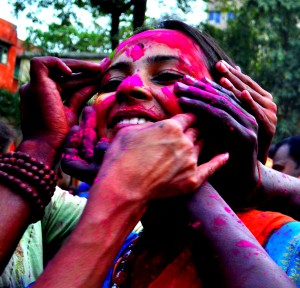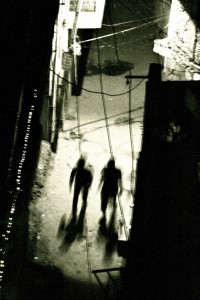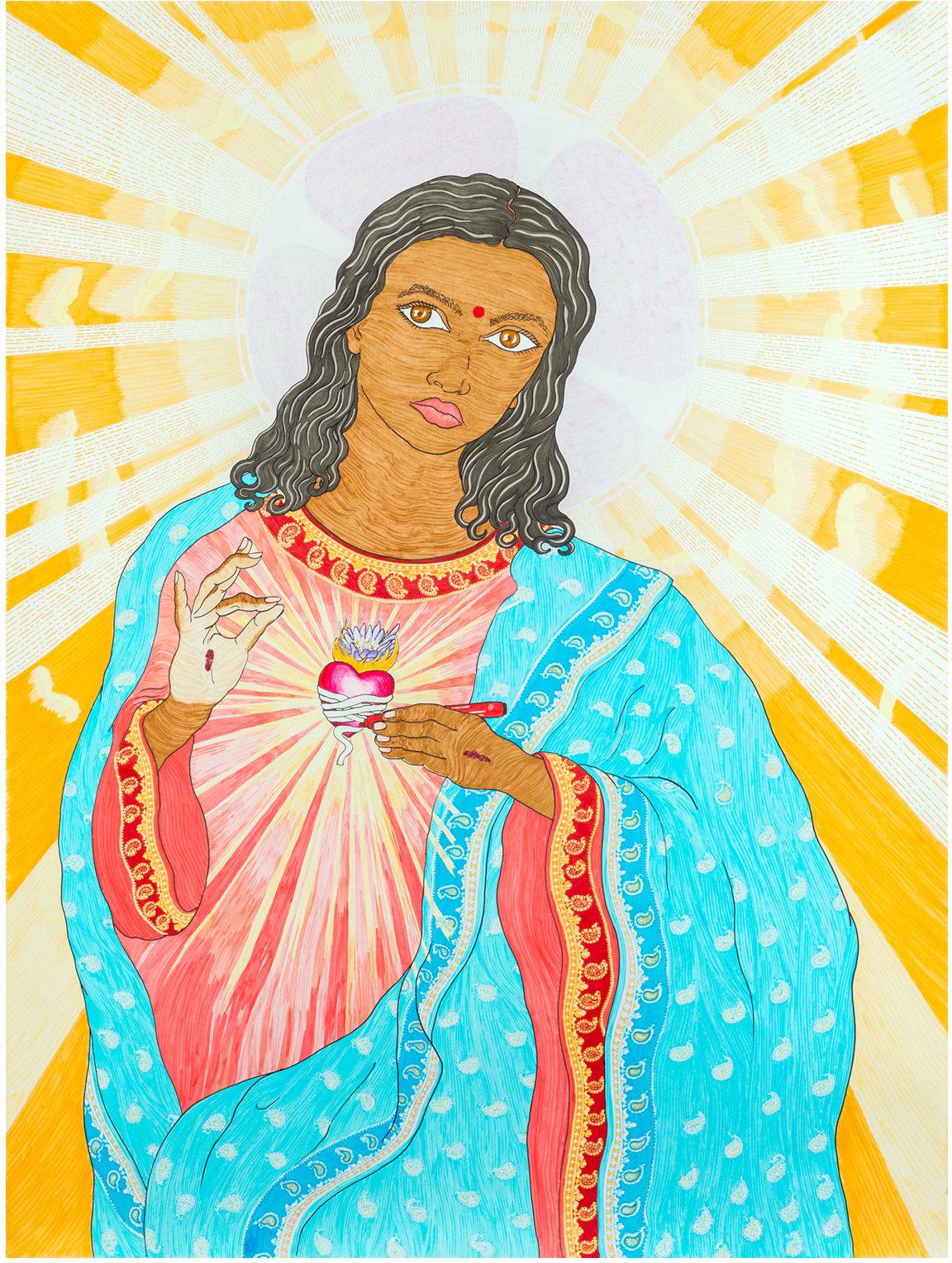Issue 1: Fall 2013
| Fiction |
|
Boys Like That
Boys like that are ugly babies. They smile at everyone and offer wilted flowers to tables and plastic chairs. Nobody picks them up unless it is an absolute emergency.
The Summer of Young Uncles
That summer, all of Saima’s uncles began appearing. They were like those Russian nesting dolls made out of the same mold: some with red moustaches, some with brown, some short, some skinny, some fat, but they all had the same look.
Amrikan Dreams
Krishna held firm to the view that a traditionalist was a dependable man. A man of moral fiber who would never let a beautiful woman or wayward daydream distract him.
| Poetry |
|
what it’s like to be sri lankan in 2012 for those of you who aren’t
It’s going home to Jaffna if you’re young, Tamil and male and not automatically being snatched by either army. Maybe. For a moment.
It’s white vans.
Kalkatiya
she asked the emissaries, “How much
for a day’s toil?” They carried us away to a dock
and locked us down. Paid in irons, we tore our throats…
At the Dancing Square—Chowk
Not all men are tone deaf unable to hear the call
of hunger. Body, bosom, bare hips, needless to say
bare feet. She cannot afford the luxury of sleep.
Model Minority
the Punjabi slips
pungent
against my teeth, weeps
when I stumble
at its edges: arches
and whorls I cannot read.
Pickling
embalming mangoes in mulled mustard oil, she tells me
the best of the season must live longer. So each April
she carefully preserves. Pickles in glass jar churning…
Here Is a Red Cat and a White Cat
All these children with their dark glossy hair;
They sail on in their small shoes.
They are floating upward almost…
| Essays |
|
Flying Saucers
I took the glistening black vinyl out of its sleeve, removed the dust wrap, placed it on the turntable.
… Lost in the grooves of these long-playing records is the history of discography, which began in 1902 with the founding of the Gramophone Company of India.
The Cab Driver and I
The driver freezes in the middle of his three-point turn. He gazes up into his rearview mirror for a better look at me. “You’re from Pakistan, and you teach Americans?” His frown is so concentrated that he looks angry.
Bitter Honey: Sexual Violence in Desi Hip Hop
Although generally approbatory attitudes toward sexual violence in music would not necessarily lead directly to rape, they create and reinforce a culture that allows rape, facilitates woman-blaming, and disempowers women. In the context of the Delhi gang rape case and the protests that ensued, it is important to note that this culture attacks women just for being women.
Race, Class, and Gender at the Margins: Exploring My Name is Khan
Post-9/11 Islamaphobia, enveloping all brown-skinned people into one homogenizing dominant gaze, opens some room for mutual recognition of Otherness at the margins of American society.
| Art |
|
 Freedom Colour
Freedom Colour
… moments where the “play” that arises from the festival allows for a freedom of transgression between caste, class, and gender lines in India.
 Indo-Caribbean
Indo-Caribbean
Indians have lived in the Caribbean since the mid-1800s, brought by the British as indentured laborers to work in sugar and rice plantations in Trinidad, Guyana, Jamaica, and other colonies.
 Delhi Through the Night
Delhi Through the Night
…the gaze of a middle-class, academically-oriented woman from a relatively small town, who feels more comfortable and safe behind a camera as she walks anonymous through the wide and narrow, intimidating and yet liberating streets of the capital city of Delhi.
 Sacred Heart
Sacred Heart
…delicate interplays between vulnerability and empowerment, intimacy and exhibitionism, and subjective and collective expressions of feminist, queer, and cultural identities.
| Reviews |
|
Fasting for Ramadan by Kazim Ali
In trying to grasp and define the contours of his own spirituality, Ali comes to some of the most startling and refreshing conclusions about his own religion and selfhood.
Karma Gone Bad: Or How I Learned to Love Mangos, Bollywood, and Water Buffalo by Jenny Feldon
For an immigrant such as myself, who moved from a big city in a developing nation to battle the loneliness of living in the US, I was eager to read Jenny Feldon’s reverse experience.
The HarperCollins Book of English Poetry edited by Sudeep Sen
This anthology serves as a conglomeration of assertive, fresh voices, a long way off from the rich inherent, albeit stringent, tradition of Itihasas and Puranas.
Crossing Black Waters by Athena Kashyap
Kashyap writes of sundering, separations, crossings, reunions, and uncertain reconciliations. The break with an imagined home is never forever; return is always a possibility yet remains unsatisfying whenever it occurs.
| Column |
|
Ask the Unicorns
A spoonful of hot ghee is nothing like unicorn blood; and yet it is a way of extending the life of the butter. … Now I’m going to tell you the secret to immortality.
| Editorial |
|
Why Jaggery?
The publishing world often tries to put its writers into boxes: easily-marketable boxes. You can’t really blame them, in some sense—it’s much easier to create a shelf in the bookstore, label it ‘ethnic literature’ and then put all the ‘ethnic’ writers there, than it would be to market each complex writer individually. The big publishers want a young desi woman to write an arranged marriage novel, because they know where the market is for those books. There’s a reason they keep putting red saris on our book covers; they know what sells.
The inaugural issue of Jaggery is co-sponsored by the Asian Studies and Asian American Studies Programs at the University of Illinois at Chicago.



